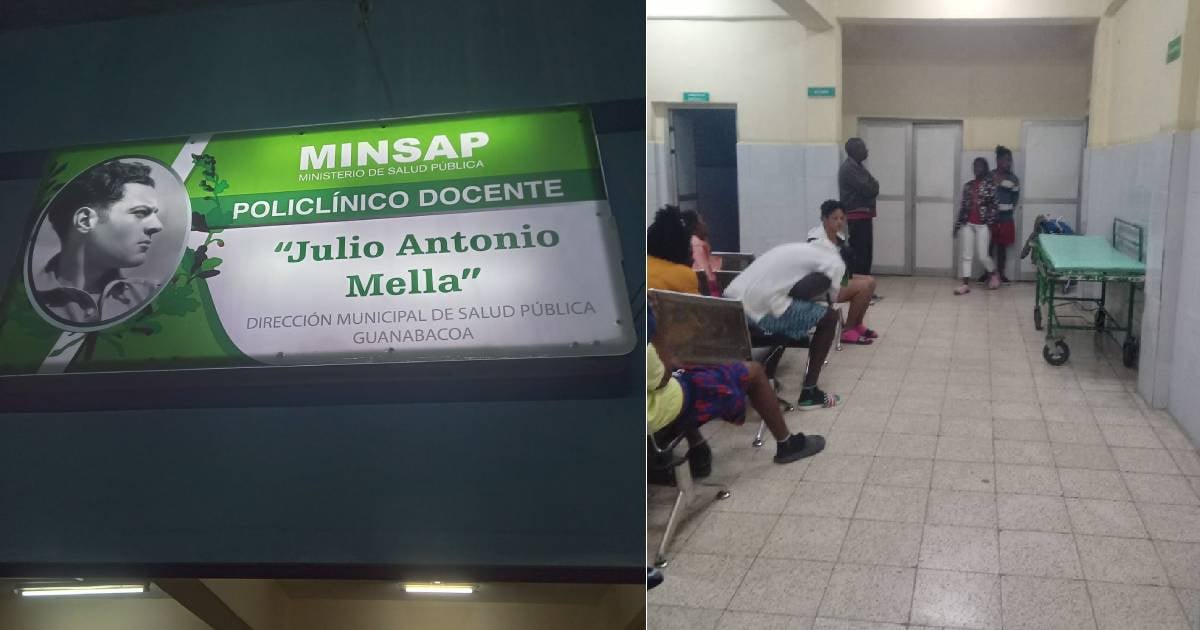A Cuban mother has raised alarms about the dire state of healthcare at the "Julio Antonio Mella" clinic in Guanabacoa, Havana, after seeking treatment for her sick baby. This incident underscores the ongoing healthcare crisis in Cuba, where families face severe challenges in accessing proper medical care.
Mayris Santiesteban, a member of the Facebook group "Cuban Mothers for a Better World," recounted her experience taking her one-year-old son to the clinic due to his respiratory issues. "I arrived at 10:45 p.m. with my baby struggling to breathe," she shared in her post.
Upon reaching the clinic, the only available treatment was a nebulizer, as the facility lacked the resources for other medical interventions, including injections. The situation worsened when she was informed that she needed to bring her own mouthpiece for the nebulizer. "They had only three mouthpieces, and they were dirty," she noted.
Without receiving proper care, Mayris returned home frustrated and worried about her child's health. "This is unbelievable. I wasted my time going there just to leave upset," she expressed.
Mayris's account has sparked significant attention on Facebook, where other mothers and users have shared similar experiences regarding the shortage of medical supplies in Cuban healthcare facilities, offering advice for improving her son's health. "Mom, buy a nebulizer and learn the doses because it's only getting worse," suggested one commenter.
Another user recounted a similar ordeal: "That's how we're living. I took mine with a fever of nearly 104°F to the Marfan, and luckily, I brought everything from thermometers to medication because there were supposedly three thermometers—one was stolen, one was broken, and the only working one had over 20 children waiting. No fever reducers, just hypocrisy. Many doctors are sent on missions abroad, exploited while Cuba takes all the money and pays them nothing, and here we lack doctors in clinics."
One mother from Matanzas shared, "I have a 6-year-old who went into crisis three days ago. At the pediatric hospital, I faced the same situation. It's shameful. They advised me to buy a mouthpiece and injection medications, essentially using the hospital only for labor."
These accounts highlight mounting criticism of Cuba's healthcare system, once considered a national cornerstone. However, the shortage of basic supplies, medications, and equipment has worsened, impairing service quality, especially in emergencies.
Recently, the government admitted that over 70% of essential medications are unavailable, severely affecting healthcare services. Of the 651 items on the Essential Medicines List, 461 are currently in short supply or unavailable.
Patients have reported the lack of syringes for urgent injections, resulting in critical situations in healthcare centers. A Manzanillo resident recounted being told there were no syringes for an injection needed for his partner in the early morning hours.
While authorities often cite the U.S. embargo as the primary cause of these shortages, many within Cuban society point to systemic management and resource prioritization issues as significant factors.
Mayris's story reflects the desperation and dissatisfaction of citizens who feel abandoned by a healthcare system that fails them in crucial times.
Understanding the Cuban Healthcare Crisis
What challenges are Cuban families facing in healthcare?
Cuban families are encountering severe difficulties in accessing adequate medical care due to a shortage of essential supplies, medications, and equipment in healthcare facilities.
What is the government's stance on the healthcare shortages?
The government has acknowledged that over 70% of essential medications are in short supply, attributing the shortages primarily to the U.S. embargo.
How are citizens reacting to the healthcare system's failures?
Citizens express frustration and despair, feeling abandoned by a healthcare system that cannot meet their needs in critical situations.
